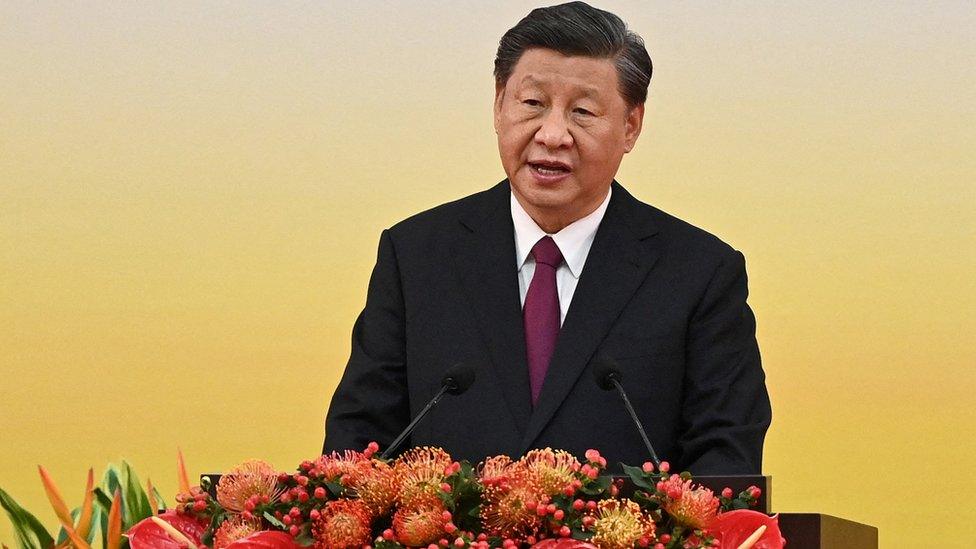China cuts mortgage rate as property crisis deepens
- Published
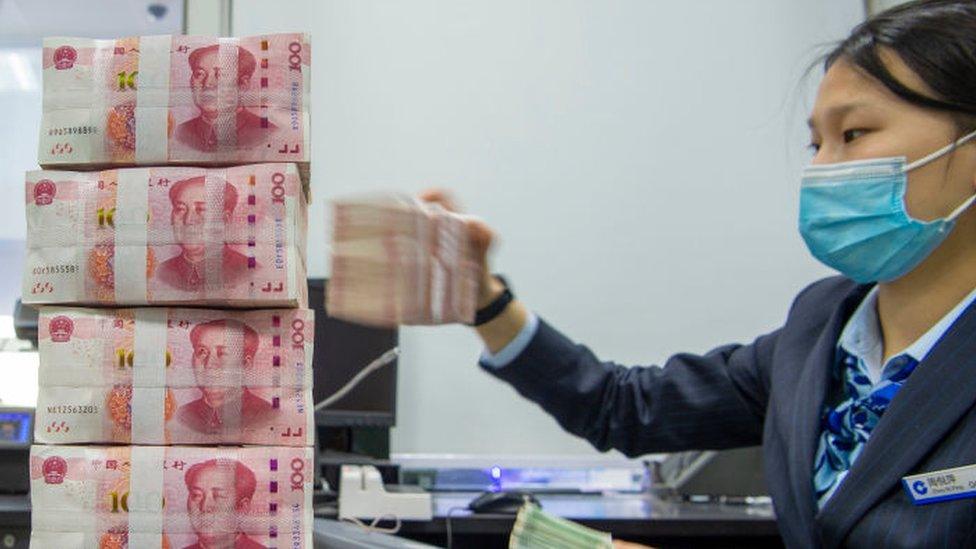
China's central bank has cut its mortgage rate as officials work to support the crisis-hit property market.
The People's Bank of China (PBOC) lowered the five-year loan prime rate (LPR) by 1.5 percentage points, which matches its biggest cut on record.
The world's second largest economy faces a property crisis that has seen some building projects grind to a halt.
Lockdowns due to the country's strict zero-Covid policies are also affecting businesses and consumers.
On Monday, the PBOC reduced the five-year rate to 4.2%, which will bring down the cost of home mortgage repayments around the country.
It also lowered the one-year loan prime rate, which is usually used to determine corporate loans, from 3.7% to 3.65%.
Iris Pang, Greater China chief economist at ING Bank, said the moves are part of a wider effort to shore up the real estate industry.
"At the same time, some local governments have started to lend to property developers to continue the construction of uncompleted homes," she said in a note on Monday.
"The two measures together should reduce the concern of existing home mortgage borrowers," she added.
China's property crisis is estimated to have wiped more than a trillion dollars off the value of the sector last year.
Home sales in China have fallen for 11 months in a row, official data shows. That is the longest slump since China created a private property market in the late 1990s.
Several Chinese developers have halted building work on homes that had already been sold, because of concerns over their finances.
Hundreds of home buyers are also known to have threatened to stop paying their mortgages until the work restarts.
Meanwhile, the Chinese government has signalled that the country may miss an annual economic growth target of 5.5%.
The Politburo - the ruling Communist Party's top policy-making body - did not mention the official growth target after its quarterly economic meeting in July. It only said leaders "would strive to achieve the best results possible".
Last week, Chinese premier Li Keqiang said the government will take more steps to boost consumption and grow investment in the country.
This came after indicators for consumption and output unexpectedly slowed.

You may also be interested in:
Watch: The Chinese people living in unfinished apartments
Related topics
- Published17 August 2022
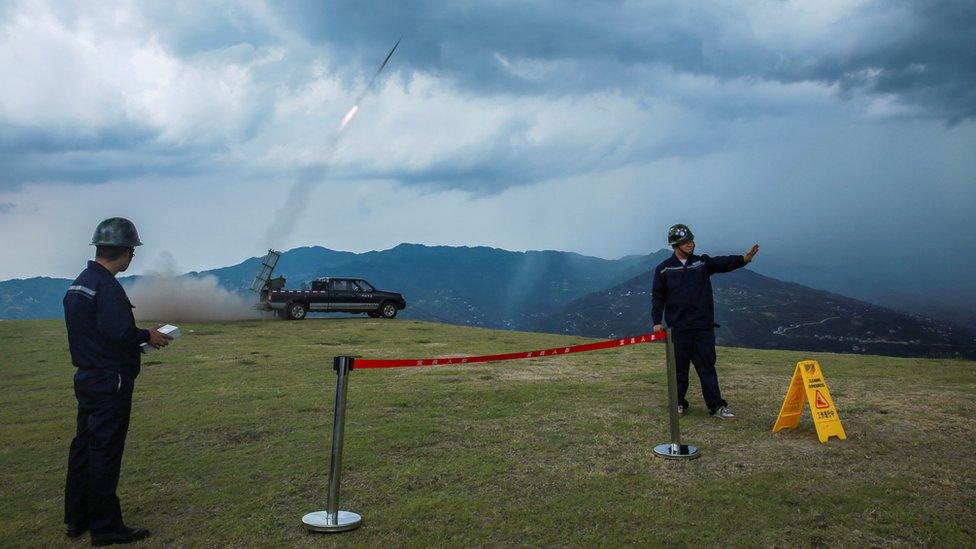
- Published17 August 2022
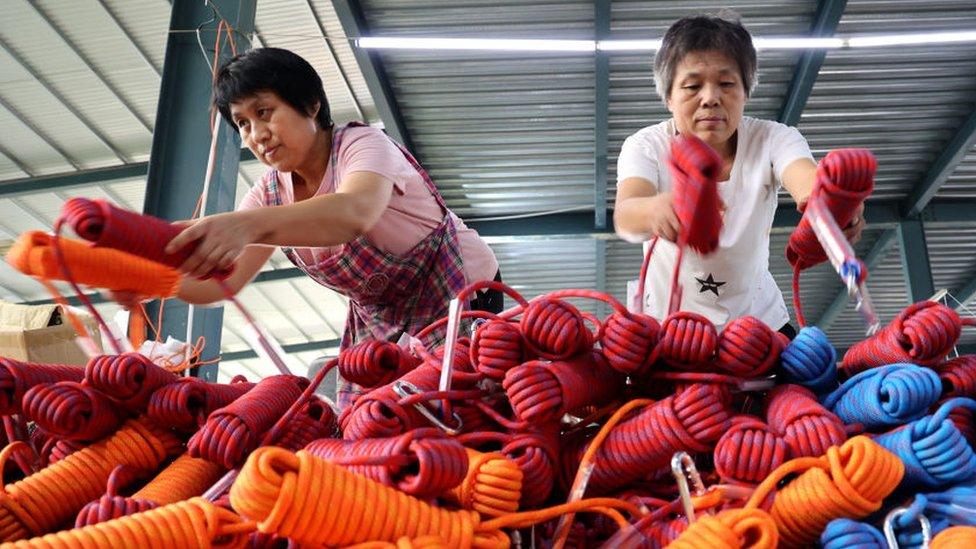
- Published10 August 2022
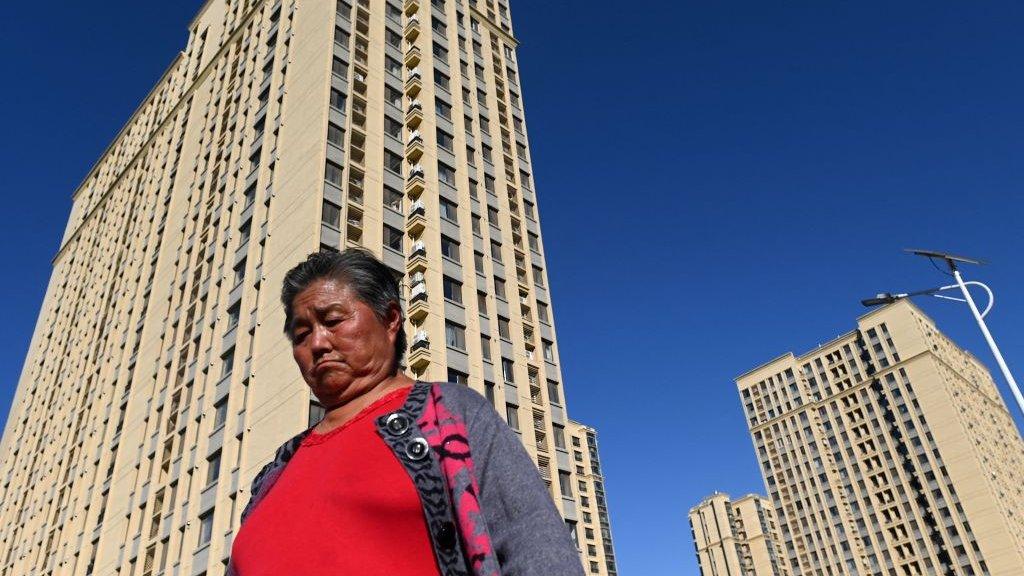
- Published29 July 2022
